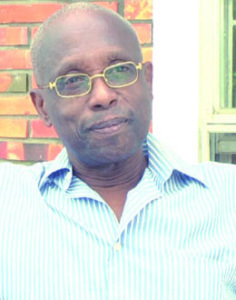Venezuela has called for the Guyana Government to resume talks about the border controversy even though the Good Offices Process has expired, and former Foreign Affairs Minister Dr. Henry Jeffrey is of the opinion that talks between the two countries should continue on a diplomatic level.
Describing Venezuela’s proposal as bold, Dr. Jeffrey says that while he does not agree with the proposal, it would nevertheless be in the best interest of both countries to continue talks on a tactful level. This, he said, does not necessarily have to be purely on the basis of addressing the controversy.

“Guyana can’t stop talking to Venezuela, but what is it that they are talking about?” he asked rhetorically. “The Guyanese and Venezuelans will live together for the longest while, regardless (of) where the border is. Guyana has a position on the border, so there will always be discourse,” he opined.
Dr. Jeffrey said he views Venezuela’s request, or proposal, as one that does not have any bearing, and one that shows “advantage to mess around and exercise unjust power.” But what Guyana is looking for, he said, is to bring a peaceful resolution to the century-old border controversy.
Revisiting his suggestion that talks between Guyana and Venezuela continue, the former minister said talks should never cease, because Venezuela has already made its position clear that it will not accept the decision of the International Court of Justice (ICJ) on the border controversy. Within that context, he said, Guyana must still find a way to continue to exist within the same space that borders the two countries.
Apart from that, he said, both Guyana and Venezuela have embassies operating in each other’s country.
Dr. Jeffrey maintained that the credibility of the Nicolás Maduro Government of Venezuela will be tested now that a decision has been made to send the case to the ICJ. He believes the present Venezuela Government is too weak to carry the border controversy resolution decision to its people.
At present, Venezuela is facing several international sanctions over rights and corruption allegations. Support for the Maduro Administration has declined sharply, and Venezuela’s economy has plunged deeper into a crisis that is marked by widespread shortages and a rise in inflation.
Some two months after the United Nations Secretary General had handed over the Guyana-Venezuela border controversy case to the ICJ for final settlement, formal proceedings were filed on June 30, asking the World Court to confirm the legal validity and binding effect of the 1899 Arbitral Award. submitted to the ICJ by Second Vice President and Foreign Affairs Minister Carl Greenidge.
This application follows a decision by UN Secretary General António Guterres earlier this year to choose the ICJ as the next means of resolving the controversy, which arose as a result of Venezuela’s contention that the Arbitral Award of 1899 in regard to the frontier between British Guiana and Venezuela was null and void.
According to Guyana’s application to the World Court, Venezuela had, for more than 60 years, consistently recognised and respected the validity of the binding force of the 1899 Award and the 1905 Map agreed by both sides in furtherance of the Award.
Guyana maintains that the 1899 Arbitral Tribunal Award that settled the boundary between Guyana and Venezuela was full and final, but Venezuela has, for several decades, registered its diplomatic and military objection to Guyana’s development of its natural resources onshore and offshore.
Venezuela, with almost 40 times the population of Guyana and a territory that is several times bigger, has purported to claim, in 1968, the entire territorial sea of Guyana by means of the Leoni Decree, which has never been withdrawn.
Relations between Guyana and Venezuela have worsened ever since oil giant ExxonMobil announced in 2015 that it had found oil offshore Guyana. Venezuela has staunchly been against oil exploration in Guyana’s Stabroek Block, where multiple oil deposits have been found by ExxonMobil.
In fact, Venezuela’s National Assembly had approved an agreement to reject the oil exploration activities in March 2017.



